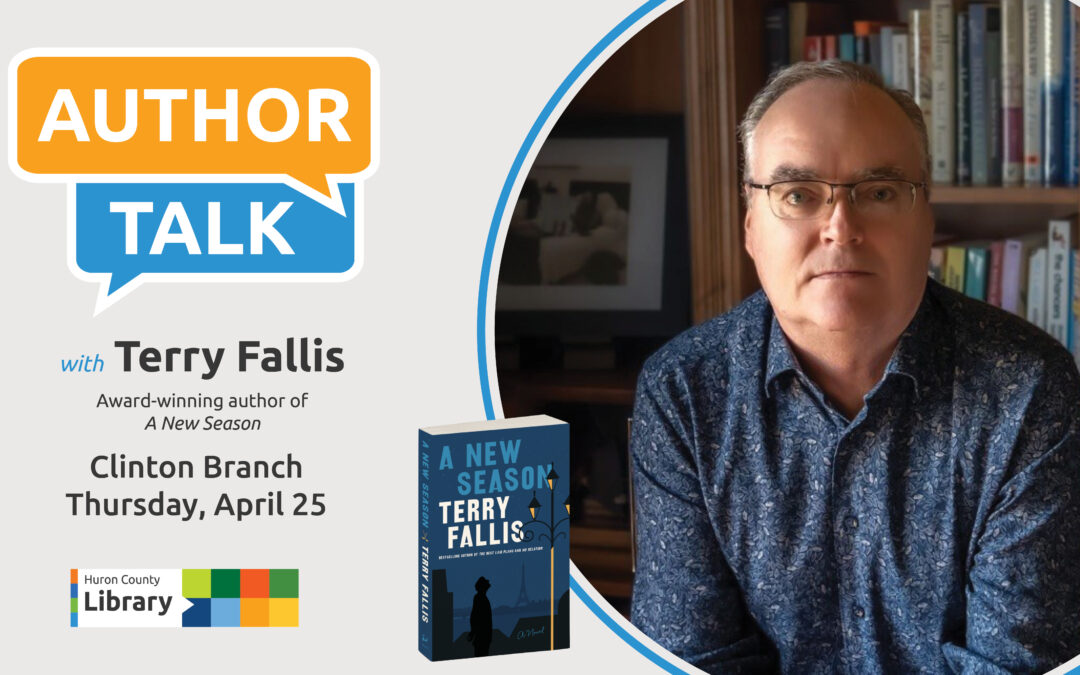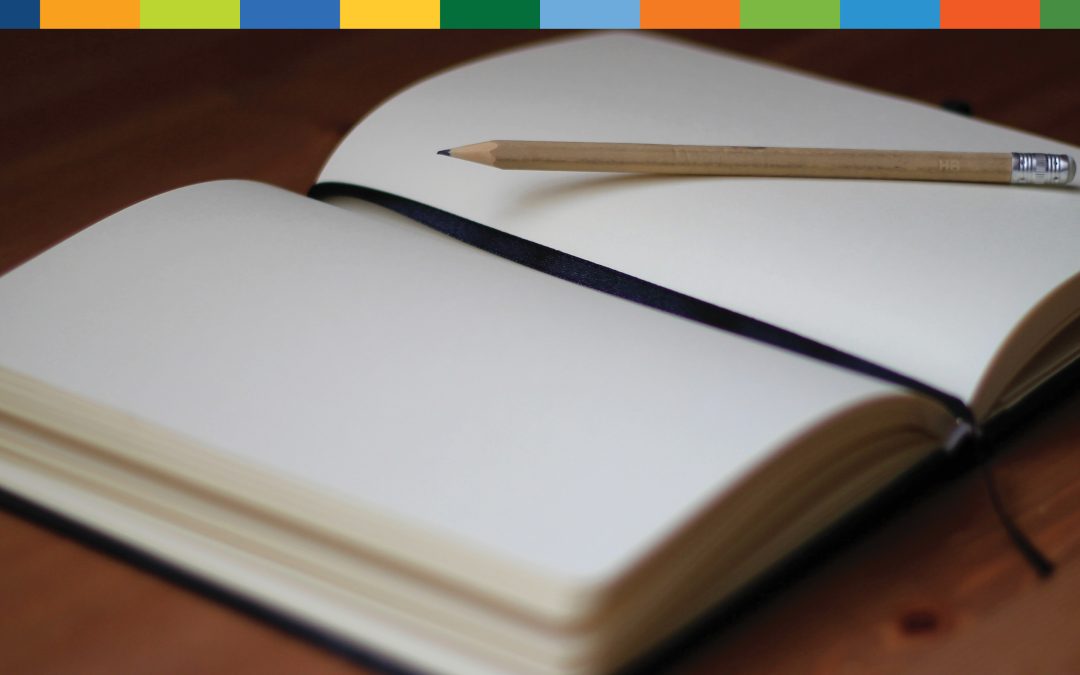
Q&A with author Terry Fallis
The Huron County Library is super excited to welcome author Terry Fallis to the Clinton Branch on Thursday, April 25 and even more thrilled that he took time from his busy schedule to answer a few questions from Branch Assistant Nancy Fisher about his latest book A New Season.
I just enjoyed listening to A New Season as an audio book. You have been recording your own books right from the start of your career. I enjoy listening to the author read their own words, but not all do it. I wondered what compelled you to be your own narrator?
When I couldn’t find a publisher for my first novel, The Best Laid Plans, I decided to podcast the novel chapter by chapter and give it away for free on iTunes and other podcast directories, just as a way of building an audience for the story. So in a way, podcasting my first novel was an act of desperation to try to break through. I was already podcasting in my day-job back then so I knew how to go about recording, editing, and producing in the audio format. Even after I secured a publisher for the novel, McClelland & Stewart/Penguin Random House, I retained the audio rights and continued to podcast my first six novels. After M&S/PRH started their own audio division, I agreed to record the official audiobook for my last three novels. To be honest, I don’t think I do it as well as a seasoned actor might. But on the other hand, I know exactly how I want the sentences to be read, and the tone and inflection to employ to best convey the message in the words. And I quite enjoy doing it.
There is often a strong link to sports in your books – golf, ball hockey, even hovercrafting! How does adding a passion for a sport help to develop your characters?
While I am certainly “into” sports and still play several, I usually write about them as a way to consider deeper issues. For instance, in Albatross, golf is just a convenient vehicle for exploring the tension that exists between success and happiness, the central issue in the story. And in A New Season, ball hockey is simply what I use to examine male friendship, one of the themes in the novel. So I tend not to write about sports as an end in itself, but rather as a means to consider other issues.
This is the second book with a link to Ernest Hemingway, yet I get the feeling that, like Jack McMaster, you are more a fan of the work and not so much of the man. What is it about Hemingway that keeps him popping into your works?
Good question! I’ve been trying to figure that out for years now. You’re right, I like neither Hemingway nor his writing. But no one can question the profound impact he had on literature, particularly in his Paris years in the 1920s. I think it’s really Paris in the 1920s that captivates me, and Hemingway just happens to loom large on that stage. I’ve read a lot about him and he certainly led a fascinating life, though his decision-making, values, and personality were polarizing—read, not to my taste.
Jack has a deep love for the city of Paris in A New Season, is that a feeling shared by you?
Absolutely. I’ve been fascinated and entranced by Paris for many, many years now. As noted above, I’m particularly enamoured of the city in the 1920s when artists flocked to Paris and collectively reshaped the cultural (and literary) landscape. I would have loved to have been a fly on the wall on Paris’ left bank a century ago. My wife, Nancy, and I return to Paris every two years to continue to indulge this interest we both share in the City of Light.

